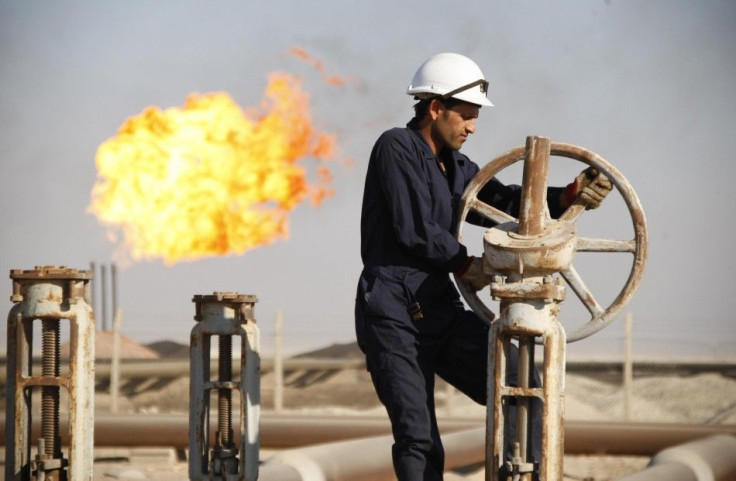For Iraqis, Violence Still Part of Life Too Much of the Time

By Patrick Markey
BAGHDAD | Fri Dec 2, 2011 10:36am EST
(Reuters) - Iraqi vendor Khundier Abbas was able to flee unharmed when the first of three bombs exploded this week in the market in Baghdad's Bab al-Sharji neighborhood where he keeps his stall.
His cousin Mohammed was not so lucky.
Abbas called his cousin's mobile telephone, got no answer and ran back to find his body crumpled by his street stall, one of eight people killed by the blasts that remain an all-too-familiar horror in Iraq after nearly nine years of war.
After I got away, I called him but no one answered. I ran back and found him laying on the ground, Abbas said waiting a day after the bombing with other relatives outside the morgue of Bin al-Nafis hospital.
What can I expect that can be worse than today.
America's engagement in Iraq ends when U.S. troops over the next weeks and the bloodier days when suicide bombers claimed hundreds of victims - both Iraqis and Americans - are gone.
But Iraqis are still troubled by almost daily bombings, attacks and killings that are as much a part of their lives as power shortages, security checkpoints and government food rations.
Attacks often target Iraqi troops, police and government offices as insurgents try to destabilize authorities. But bombs still kill or maim Iraqis who are just in the wrong place at the wrong time - a market, a mosque or a line outside a bank.
The last 12,000 American troops are packing up and leaving Iraq before the end of 2011, more than eight years after the U.S.-led invasion that ousted Sunni dictator Saddam Hussein.
In a low-key Baghdad ceremony on Thursday, U.S. Vice President Joe Biden praised American and Iraqi troops for bringing the war to an end.
The sectarian slaughter that made global headlines four years ago has passed as American troops and retrained Iraqi military pushed back Sunni insurgents and the Shi'ite militias backed by neighboring Iran.
But Iraqis are wary on how their country will fare once the Americans leave. The Americans are seen as an occupying force by many but welcomed by others who believe they act as a buffer amid the country's still volatile sectarian mix.
Baghdad mornings are still occasionally punctured by the thump of roadside bombs or a rocket exploding near the heavily fortified Green Zone, where the U.S. embassy and many ministries and government buildings are housed.
Sunni Islamists tied to al Qaeda often target local government buildings and Shi'ite pilgrims and neighborhoods to undermine local security or stir sectarian tensions. Shi'ite militias still target U.S. troops and their political rivals.
The Americans didn't do this, it's Iraqis who did this, we have become victims of all sides, said Haider Maalah Hussein, a day worker caught in a recent blast that broke his right leg.
Maybe this will end after the withdrawal.
ATTACKS LESS DEVASTATING BUT STILL WIDESPREAD
During the height of the war following the 2003 invasion, Iraq faced more than 100 attacks a day. Suicide bombers shipped across from Syria and packed with high-powered explosives attacked mosques and crowded streets to cause maximum havoc.
Neighborhoods became fortresses as Sunni and Shi'ite militias turned Baghdad into a maelstrom of sectarian slaughter.
In 2006 alone, more than 17,800 Iraqi military and civilians were killed by violence, according to government statistics.
For many Iraqis, security is still a key worry, even as the OPEC country rebuilds its war-shattered economy with oil revenues. It needs investment in almost every part of its infrastructure from hospitals to power generation plants.
Insurgents are now less capable and their bombs less potent. But the breadth of violence is striking: Car bombs, roadside bombs, sticky bombs attached by magnets to cars, mortar rounds, and gunmen using silenced weapons to single out targets.
Bombers still employ a favorite tactic - setting off one bomb, then detonating one or two more blasts when security forces or the crowds arrive. Suicide bombers hit targets often when crowds of workers collect salaries or change shifts.
The monthly civilian death toll ebbs and flows - August 155, September 110, and the highest so far this year in October when the number killed by violence rose to 161.
Iraqi and U.S. officials say the revamped Iraqi military are capable of containing what remains of the country's armed groups, but recent attacks show how complex security remains.
Ten people were killed by a bomb in a market place in Khalis north of the capital on Thursday, and a few days earlier a suicide bomber killed 19 people in an attack on a military base.
Baghdad over the last week had the following: eight killed by three bombs in a market; one killed by a mortar round; six killed by a roadside bomb; a bomb wounded four policemen in the north and seven others were wounded by another blast.
Often double the fatalities are those left maimed.
In Imam Ali Hospital in Baghdad Ali Sabah lay semi-conscious on a metallic bed, his right arm severed and his leg shredded by a car bomb that exploded meters away from him.
The blast that caught the four-year-old and his father killed 18 people in Sadr City, a Shi'ite stronghold of anti-U.S. cleric Moqtada al-Sadr.
Ali and his father were on their way to buy some sweets when a car bomb blew up, they were just few meters away, the boy's uncle Muhammed Abdulridha said recently sitting at his bedside, reflecting on the state of the country.
The war won't be finished even if the Americans leave.
© Copyright Thomson Reuters 2024. All rights reserved.












